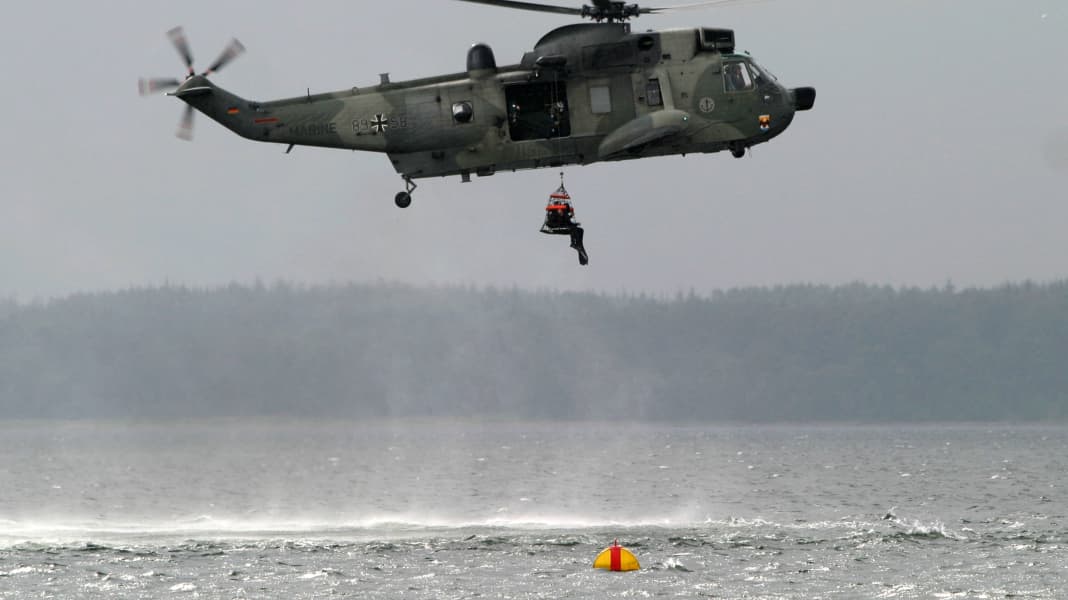
The BSU's annual report provides an overview of the authority's work over the past year. One focus of the report is the presentation of current ongoing investigations. For example, the BSU has launched two investigations into recreational boating, an area that was less of a focus in previous years.
According to the 2021 report, the number of marine accidents has increased again - but this is less due to an increase in accidents than to the "corona dip" in 2020. The figures for 2021 are back to pre-pandemic levels.
We spoke to the director of the BSU, Ulf Kaspera, about the findings of the report.

Mr Kaspera, has sailing become safer in recent years?
Kaspera: Basically, not much has changed compared to the pre-corona years; the accident figures are relatively stable. What is pleasing is that the number of marine accidents with serious injuries and fatalities has fallen.
Are the sailors more careful, the boats safer?
It is difficult to say from the data available to me. I attribute the development to increased safety awareness on board. Lifejackets are perhaps worn more often than they used to be.
On the other hand, the number of inexperienced newcomers on the water has risen sharply during the pandemic. Doesn't this also harbour potential dangers?
The absolute number of accidents has not risen, but the number of accidents involving commercially used sailing yachts has increased. The same applies to motorhomes and caravans - like boats, they were increasingly rented because other holidays were not possible. But many charterers had probably not sailed for a long time or were unfamiliar with the area, so they ran aground and had to be rescued. This happened - and this is striking - much more frequently than before the pandemic.
They investigated the case of "Silja", a small cruiser that sank in stormy conditions in the Seegatt off Langeoog, in more detail (to the article). Two crew members were rescued, one died. What is interesting about this from your point of view?
This tragic case shows anomalies that we wanted to take a closer look at and from which all sailors can learn. The waistcoats of all three sailors had come loose from the protective cover, which should never happen. Then there were ground swells in the Seegatt, which I'm sure not everyone realises, and there was also a wind-against-current situation - which should definitely be avoided! You have to take these dangers into account when planning your trip.
What problem did the life jackets have?
I don't want to prejudge the outcome of the ongoing investigation. However, the waistcoats were in normal condition.
Why don't you investigate more cases?
In principle, we are only responsible for sailing accidents in exceptional cases. That's why we concentrate on cases where safety gaps become apparent, which we generally want to identify and publicise because we can learn something from the findings. Many accidents simply happen due to carelessness or involve single-handed sailors, because there are no witnesses. In such cases, no accident investigation will help.
Are there more accidents with autopilots?
We have had four accidents in a very short space of time in which the autopilot failed. We are now scrutinising these more closely. We all know: you have the technical aids on board - and then you also rely on them to a certain extent. That's human nature. However, it must also be clear to everyone that the skipper is responsible for safety; you can't pass this on to the equipment. We have a similar discussion with self-driving cars.
Which topics are still burning under your nails?
We are currently investigating a classic risk: the skipper goes overboard, the bathing ladder is too high and it is not possible to pull him back on board - until the man is finally exhausted and drowns. He was not wearing a lifejacket. Two out of three people on the "Silja" only survived because they were wearing a lifejacket. This leads to a very old topic: the debate about the obligation to wear lifejackets. I would welcome it, but it's not politically opportune at the moment.
Are the safety requirements that have been much discussed in recent years, especially with regard to traditional ships, justified in view of the accident record - or are they too high?
The figures from the last three years are not meaningful, as only a few traditional ships were able to organise guest trips due to the pandemic. Overall, however, I think that the new ship safety regulation, which was painstakingly negotiated, is a good compromise. It should now be given time to develop. The regulation is very favourable to traditional ships in that it allows for alternative measures.
Do you feel that the BSU is being listened to by water sports enthusiasts?
I think that our recommendations will be heard, especially by the sailing schools.

